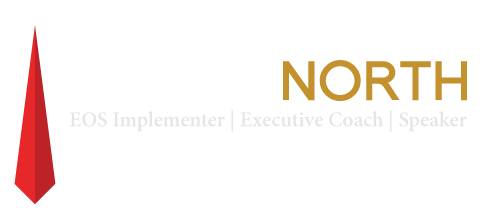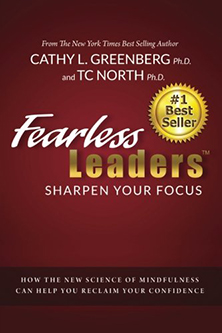Part II of our “How to Master Fear” series takes you through a process for identifying fears that are associated with each of the “big four fears.”
Identifying your fears is the first step in my six-step technique to master fear. Remember from the first video that the big four fears are fear of failure, fear of success, fear of rejection and fear of selling.
As you watch the video or read the text below, identify at least one fear you have related to each of the big four fears. Then choose one fear and work toward mastering it as the “How to Master Fear” series continues. If you do, you’ll likely make significant progress on mastering your fear.
Join speaker agent Kim Tracy and me in mastering your fears by either watching the video of the interview that Kim originally produced or by reading the text below, which we edited to enhance readability.
[vc_video link=”https://youtu.be/7TxRF1n-2fs”]
Kim: This is the second segment of our mastering fears series. It’s called identifying fears. Last time we actually talked about the big 4 fears. Can you repeat for our audience what those are?
TC: The big four fears – when we digested the thirty-something fears that we actually asked people to identify we were able to categorize those into four main fears. Those are:
- Fear of failure
- Fear of success
- Fear of rejection
- Fear of selling.
Before we go into the resolution of fears, identifying fear is the first step of mastering fears, so how about we spend a little more time on the identification today?
You all listening and watching, I have a question for you. What are you afraid to fail at? This could be your personal life, your professional life, a love relationship, a relationship with a child, friends, colleagues and fear of letting them down.
Come up with one thing you’re afraid to fail at. We’re not going to quantify the level of fear yet, but just what are you afraid to fail at? That’s the first big fear.
The second one – fear of success. As I shared with you earlier Kim, I think that fear of success is one of the most cryptic and broad-based fears in all of corporate America especially. So I’m going to explain to you what fear of success is. It’s what we call in psychology cognitive dissonance, which means there’s an inner struggle between two goals or two things in your mind.
If you want to be more successful at work and I feel like that’s going to take away from your home life, you’ll have dissonance about that. It’s that work/life balance thing that everyone talks about. (And that’s a whole different topic for another day. It’s not about balance; it’s about success in all important areas of your life.)
Some people I work with, high achievers especially, they aren’t balanced in the traditional sense but a lot of them have really complete and happy lives, in all aspects of life. And that’s really the goal. It’s not balance the way the think about it being equal. So fear of success … other examples – I’ll share a personal example that you may or may not know about me – but if you do a psychological profile, I’m an extreme introvert. You’re my speaker agent so I probably shouldn’t tell you that, right?
Kim: We’re actually both introverts.
TC: So then you know, as an introvert that I have the constant challenge of being alone. I love being at home. I love being with the people I love. I love being with my animals, my garden in the yard, and yet I love to go out and be on stage.
My DNA’s is an introvert, and my DNA says “be at home” but I have to make sure that I don’t let that sabotage my desire to make a difference in the world. And that has to be very conscious, because if it’s not conscious then my subconscious will find all kinds of ways to sabotage me that I won’t even know.
That’s why I say fear of success is so cryptic. It happens and we don’t even realize that it happens. We think it’s circumstance, it’s life, it’s whatever and we find an excuse for it because we don’t understand that it’s us creating it at a deeper level. Does that make sense?
In larger organizations, if I’m really successful in my job I may have to go to a different city or state or even country for my next move. Do I want to leave all that I know and all the people I love to be more successful at my work? Fear of success has so many pieces to it it’s so important to understand that cognitive dissonance that can happen with two sets of goals.
The third of the big 4 fears is fear of rejection. This one is a little more obvious. There’s some interesting aspects to fear of rejections. I do a lot of coaching of entrepreneurs and a lot of them are really nice people. Because they are nice people they want their employees to like them.
Sometimes it’s more important to be respected than liked. So they’re afraid if they give tough feedback – loving, tough feedback – they’re afraid they’re not going to be liked and they’re going to be rejected as a friend and as a person. It really holds them back, because you have to get the best out of every person on your team. And when you’re just always nice, you don’t get the best. High performers thrive on feedback.
The fourth fear is fear of selling.
When I went through fear of success – did you think– If you’re more successful it changes your life in a way that could be challenging to you and so maybe there’s parts of that you don’t like? Note that, it could mean you have fear of success. Fear of rejection – not just the obvious ones – but the less obvious ones. You might be afraid to be rejected by a friend at a friendship level, or an employee in terms of their loyalty or how much they like you.
Then the fourth fear – fear of selling. People often run into this fear as a fear of selling themselves (not just products and services). Because we have to do that all the time. We’re selling an idea to a colleague or to a spouse or child. We’re always selling ideas all day long. We don’t call it that, but that’s our influence. So I wanted to cover those in more depth because we went through the 6 steps of mastering fear last time. Step one is identification. I want people to get really solid on identifying their fears, because without identifying fears you can’t master them.
Kim: Nice. As we wrap up, what is the tip that you want to leave the viewers with today?
TC: I printed out something that I share with almost all of my coaching clients. And pardon my language but, it positively pisses people off. It’s the victim and master continuum. With your mind – are you victimizing yourself when you don’t acknowledge your fears? If you don’t try and figure out what’s sabotaging your success or not allowing you to be as successful as possible because it’s fear based – that’s really putting yourself as victim to your own mind. Will you be master of your mind or victim of your mind? If you don’t identify and master your fears, you’re literally being a victim of your mind.
Kim: Excellent. If you would like to bring TC North in for a keynote, workshop or seminar, please contact me, Kim Tracy through MaxwellJames.net. Thanks so much!


